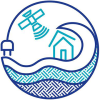Get to know » Students » Self-reflections :
Student well-being
On this page
The PILNA student questionnaire collected information about children’s physical health, mental health, relationships, and material circumstances. The intention was to collect a holistic picture of the well-being of the students who participated in PILNA.
Students were given a list of circumstances, as set out in Table 7.4, and were asked to indicate how often they experienced them. They could respond with ‘Never’, ‘Sometimes’, ‘Most of the time’, or ‘Always’. For reporting the results, ‘Most of the time’ and ‘Always’ were combined, as they were considered to be materially similar in terms of student experience
Well-being experiences
Table STT1.6 shows the proportions of year four and year six students who reported experiencing the associated condition at least most of the time.
In Niue, 48% of year four students and 74% of year six students reported that they had a good day ‘Most of the time’ or ‘Always’ and 67% of year four students and 69% of year six students reported that they looked forward to the next day ‘Most of the time’ or ‘Always’.
For frequent negative experiences, about one in five students reported feeling hungry, tired, upset, or not having enough friends either ‘Most of the time’ or ‘Always’. These proportions were found across year four and year six students, with one exception. Most year six students, 70%, reported frequently experiencing hunger. This is much higher than the regional value of 19%.
What does this mean?
Only half the students in Niue, at least most of the time, are cheerful, have good days, and look forward to the next day. Many students are regularly experiencing positive well-being but a substantial proportion are not. Also, about one out of five students are frequently experiencing challenges to well-being, such as feeling hungry, tired, upset, or not having enough friends.
One area of particular concern is hunger experienced by year six students. Most year six students, and substantially more than year six students across the region, regularly experienced hunger. Interestingly, a much lower proportion of year four students regularly experienced hunger. This, as well as the other negative experiences, should be investigated further as they may affect student performance and well-being.








